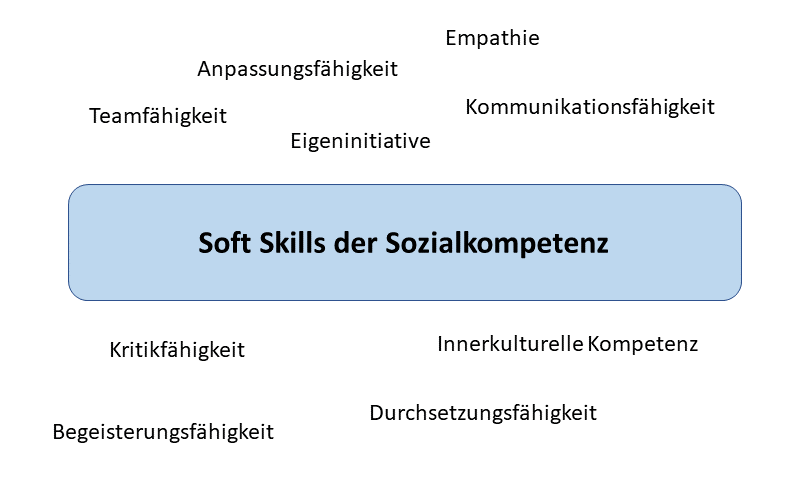Social Competence
9 soft skills for interpersonal interactions

Social competence is a broad term. Simply explained, some so-called soft skills are summarized below, which are important for dealing with other people - but also for dealing with yourself. Anyone who is socially competent has the ability (competence) to behave appropriately (socially) in a community.
What Are Soft Skills?
Soft skills are the character traits, attitudes, behaviors and abilities that are helpful for dealing appropriately and purposefully with other people.
Social Skills In Professional Life
Social competence is of great importance both in private life and at work. In contrast to the past, employers attach more importance to the social skills of the potential employee. Anyone who has technical and social skills at the same time appears more capable of working in a team, more capable of criticism, more reliable, more capable of learning and has more empathy. Above all, the combination of professional and social skills leads to success within a team and a company.
Learn Social Skills
The character of a child is "formed" by the teaching of values and norms by the parents / caregivers. A child's own experiences also contribute in particular to this. Children need contact with other children in order to develop social skills.
Your own social skills are tested anew every time you meet strangers. Strangers are difficult to assess. If you have good social skills, you still have no problem adjusting to new people and can deal with them appropriately together.
Anyone who is unsure whether their social skills are sufficient can nowadays fall back on many offers in the field of further education and training.

The Most Important Soft Skills Of Social Competence
As already described, many soft skills are associated with social competence. The most important are:
- teamwork
- communication skills
- assertiveness
- empathy
- critical ability
- adaptability
- enthusiasm
- initiative
- intercultural competence
Teamwork
Especially in everyday work, the ability to work in a team is one of the most important social skills (if not the most important).
Being able to work in a team means being able to fit into a group, to act with it, to cooperate, sometimes also to compete, to discuss and to make compromises. In order to be able to work successfully as a team, it requires respectful interaction with one another. Consideration and constructive discussions also lead to good teamwork.
Communication Skills
Communicating means speaking freely and being able to express yourself correctly in conversations. This social competence also includes listening and correctly interpreting the facial expressions, gestures and articulation of the person you are talking to.
Assertiveness
Many associate the term assertiveness with the thought: "I want to get my way at all costs". Rather, it is about the ability to find a balance between asserting yourself and giving in. Having a feel for when it is right to assert yourself or give in is an important social skill.
Empathy
Empathy is the willingness and ability to put yourself in other people's shoes. Empathic people can not only tell from the facial expressions of the interlocutor what and how they are feeling at the moment, but also recognize hidden emotional signals.
Critical Ability
People who possess this soft skill are able to accept constructive criticism without feeling personally attacked by the critic. They are able to compare their own perceptions with others , accept criticism when appropriate and learn from their mistakes.
On the other hand, being able to accept criticism also means expressing criticism constructively. The point here is to present your point of view to the interlocutor objectively and calmly.
adaptability
Someone who is adaptable has the ability to adapt quickly and easily to new challenges and situations. Adaptable people are flexible and have a broader perspective on the situation and environment than people who are less able to adapt to something new.
Enthusiasm
People who have this soft skill are open to new things and inquisitive. If you are interested in something new, then with passion and personal dedication. They have an intrinsic motivation to learn new things and to devote themselves to something with euphoria.
Initiative
People with initiative take responsibility for their actions, work independently and can make their own decisions. They act and operate of their own accord.
Inner Cultural Competence
This is about acceptance and dealing with people with a different cultural background.
Someone who has inner-cultural competence understands and is interested in the other culture, can act respectfully with the other person and pays attention to both verbal and non-verbal signals.
Conclusion
Everyone has a certain level of social competence. To what extent this is pronounced depends, among other things, on how one was brought up and what social ties were and are present.
Without social skills, it is difficult to get in touch with other people or to communicate with them.
The good thing is that you can still acquire social skills as an adult. You can either do this out of your own motivation by reflecting on your behavior in social interactions, or you can book training in this area.